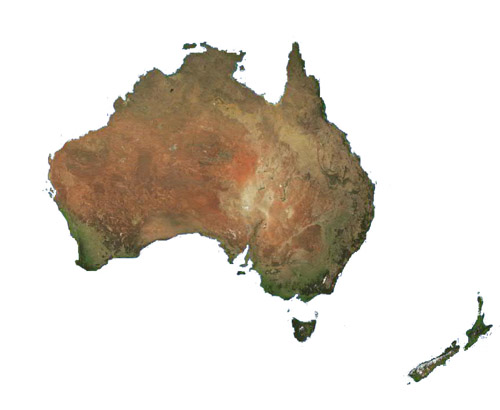Pacific panic over tsunami alert
 Sydney - Panic spread among Pacific island nations after a tsunami warning was triggered by two massive earthquakes off the coast of Vanuatu Thursday morning.
Sydney - Panic spread among Pacific island nations after a tsunami warning was triggered by two massive earthquakes off the coast of Vanuatu Thursday morning.
It took several hours for the Pacific Tsunami Center in Hawaii to cancel the warning once its ocean monitors detected only a 4-centimetre tsunami wave, but the message failed to reach many islanders who had already headed for high ground.
Islanders remained nervous after a tsunami devastated the islands of Samoa eight days ago, killing 184 people and destroying thousands of buildings.
The US Geological Survey reported three quakes off Vanuatu within the space of less than an hour, starting at 2141 GMT Wednesday with a 6.7 temblor in the Celebes Sea off Malaysia, followed by two quakes measuring 7.8 and 7.3 near Vanuatu in the following 40 minutes.
The Pacific Tsunami Warning Centre in Hawaii had issued a tsunami warning for Vanuatu, Solomon Islands, Nauru, Papua New Guinea, Tuvalu, New Caledonia, Fiji, Kiribati, Kosrae, Wallis-Futuna and Howland-Baker.
A tsunami watch, a lower level of alert, was issued for both New Zealand and Australia as well as Samoa, American Samoa, Tonga, the Cook Islands and Indonesia. The watch was cancelled for Australia after an hour.
Witnesses described scenes of panic in Vanuatu as residents and tourists reported seeing big waves and rushed away from the coast.
Hotel staff ordered guests off the beaches and rushed them to higher ground. Phone lines crashed as people called each other to alert them to the warning.
Shane Coleman, consular officer at the New Zealand High Commission at Port Vila in Vanuatu, said the tremors did not seem to cause any damage and there was no sign of a tsunami.
The streets in the Samoan capital Apia were deserted after warning sirens sounded. Many frightened tourists were urged to climb to the roof of their hotel and were looking fearfully out to sea for a wave that this time did not come.
Samoans will hold a national day of mourning Friday for those who died in the September 29 tsunami.
In Fiji, police and troops stopped people entering the city centre, while officials ordered hotels to take tourists inland.
New Caledonia officials sounded warning sirens and ordered people away from the coast on the main island and eastern Loyalty Islands, while the low-lying atoll nation of Tuvalu also hurried residents away from the shores.
In Papua New Guinea many people were still running to higher ground as the all clear was sounded, roads were choked with cars and many businesses closed.
Christian Lohberger, who sells marine supplies, told his worried staff to go home. "My staff were grabbing life jackets off the shelf and putting them on and running up the hill," he told Australian Broadcasting Corporation (ABC) Radio.
A spokeswoman from the Solomon Star newspaper in the Solomon Islands capital Honiara said people were still panicking and rushing to higher ground hours after the alert was over.
Vanuatu travel agent John Nicholls told News Ltd the quake "felt like I was being pulled along on my chair and the tables moved."
"That's not uncommon here as we get hundreds of those a year. The earthquakes are usually around 6.1, but this was bigger and lasted for longer."
Even though fears of a tsunami hitting Australia were over, ships were being told to move away from the coast as gale force winds were whipping up 10-metre swells. (dpa)